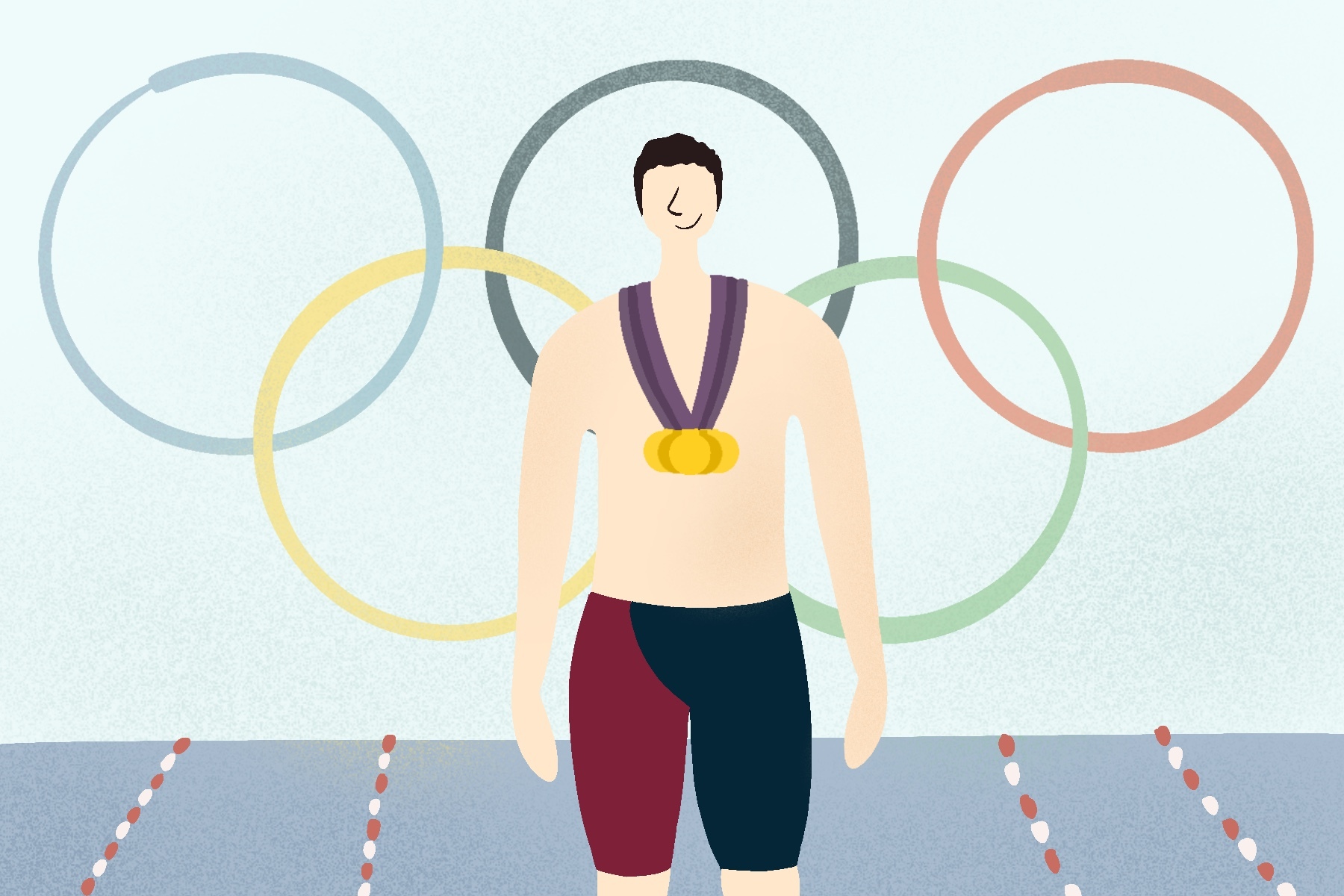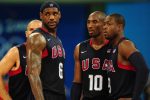Although the athletic world universally recognizes Michael Phelps as the greatest swimmer of all time, experts also acknowledge that of all his rivals, Ryan Lochte was consistently the prodigy’s greatest challenge and adversary. A popular swimmer in his own right, Lochte has won multiple medals at the Olympics and other international competitions, both as part of American relays and as an individual competitor. He has even beaten Phelps head-to-head on a number of occasions. Moreover, Lochte’s world record in the 200 IM from 2011 still stands to this day, a testament to his level of dominance at his peak.
These days, Lochte’s name remains marred with controversy, which first started in 2016 in the infamous “Lochtegate” incident involving him and the Brazilian police. After an investigation found that Lochte falsely accused the police of holding him and his teammates at gunpoint, the once-beloved swimmer found himself disgraced by the entire swimming community.
Even though Lochte’s original description of the incident was later proven to have been mostly accurate, his public image never recovered. Furthermore, in 2018, the United States Anti-Doping Agency suspended Lochte for taking an intravenous injection, which further tarnished the swimmer’s legacy.
With his suspension lifted, Lochte has since been able to race again, but despite the incredible feats he pulled off in the past, it remains to be seen whether he can qualify for the Tokyo Olympics as he contends with the effects of age, unprecedented public scrutiny and increasingly stiff competition.
A successful collegiate athlete at the University of Florida, Lochte first emerged onto the international swim scene in 2004, when he qualified for the Athens Olympics. He partook in the famous 800 free relay, in which the United States upset the Australian team and earned a silver medal behind rival Michael Phelps in the 200 IM.
After this successful debut, Lochte would continue to improve over the next four years, gradually expanding his event lineup and continuing to place highly, although a head-to-head win over Phelps still eluded him. At the 2008 Olympic Trials, Lochte and Phelps put on one of their most legendary races in the 400 IM. Both swimmers broke the previous world record, but Phelps still managed to earn a narrow victory over Lochte.
Despite Phelps’ utter dominance at the time, Lochte had a standout Olympic appearance in his own right in Beijing. He won his first individual gold medal in the 200 backstroke, defeating American legend Aaron Peirsol. Lochte also won two bronze medals in the 400 IM and 200 IM, and he picked up a gold medal as part of the 800 free relay, which the United States dominated from start to finish.
The majority of coverage in 2008 understandably revolved around Phelps and the eight gold medals he won, but Lochte undeniably had one of the best individual performances ever recorded at the Beijing Games.
From 2008 to 2012, Ryan Lochte reached what many consider to be the peak of his career. Phelps opted not to swim either the 200 or 400 IM at the 2009 World Championships in Rome, and Lochte dominated the events in his absence.
The pair would meet again at the 2010 U.S. National Championships, and although Phelps narrowly squeaked out a victory over Lochte in the 200 free, Lochte responded with one of his most memorable races to date in the 200 IM, where he decisively defeated Phelps.
Lochte would still improve further. At the 2011 World Championships in Shanghai, Lochte put together one of the most impressive international performances by any swimmer in the sport’s history, winning gold medals in the 400 IM, 200 IM, 200 backstroke, 200 free and 800 free relay. In particular, he scored wins over Phelps in both the 200 free and the 200 IM. As a result, the community believed that Lochte had finally eclipsed Phelps, and the once-overshadowed Lochte now stood out as the agreed-upon best overall swimmer in the world.
Even though the London games remain Lochte’s most impressive Olympic showing to date, many still consider it a failure in regards to the expectations set upon him at the time. Lochte started the games with a decisive head-to-head win over Phelps in the 400 IM. However, in the 400 free relay, Lochte attempted to bring the team home as the anchor leg, only for France’s Yannick Agnel to overtake him and the American team for the gold medal on the final lap. Lochte’s struggles continued in the 200 free, where he missed the medal stand, finishing behind Agnel, China’s Sun Yang and South Korea’s Park Tae-hwan.
Lochte did pick up another gold medal as a part of the 800 free relay, but shockingly, he lost his signature event, the 200 back, fading to third on the final lap of this race behind fellow American Tyler Clary and Japanese veteran Ryosuke Irie. Lochte closed out these games with another second-place finish behind his longtime rival, Phelps, in the 200 IM.
Heading into 2016, Lochte’s performances finally seemed to show the effects of age. He failed to qualify for the Rio Games in the 400 IM and only barely earned a spot on the 800 free relay and in the 200 IM. While he was able to win gold with the team during the relay, he had a very disappointing 200 IM, where he failed to finish on the medal stand.
Despite these relatively lackluster results, however, they would prove to be the least of his problems. Lochtegate resulted in widespread criticism from Team U.S.A., the international swimming community and the general public. The swimmer lost his endorsements and found himself universally ridiculed as a result of his actions.
Currently, Lochte finds himself in a somewhat precarious position in terms of his chances to qualify for a fifth Olympics. Although his rival, Phelps, has long since retired, new opponents, like Chase Kalisz, Jay Litherland and Carson Foster, all present serious threats to Lochte’s ability to qualify.
Moreover, Lochte’s physical decline has become very apparent, as the swimmer admitted to being about 25 pounds overweight at the 2019 U.S. Nationals, in which he won the 200 IM. He has also posted many underwhelming results at recent competitions, such as the U.S. Open and TYR Swim Series, which has led many to question his chances of returning to his previous form. The postponement of the Olympic Games as a result of the coronavirus pandemic may be a blessing in disguise for Lochte, as it may give the former star more time to return to his previous level.
Realistically, based on Lochte’s form and the scope of competition within the United States, Lochte’s only real chance to qualify for the Tokyo Games will be in the 200 IM, the event in which he still owns the world record. Only two swimmers will be admitted, and for all the accolades that Lochte has to his name, his ability to qualify for the next Olympics may still determine the way in which the community perceives the entirety of his legacy.
















